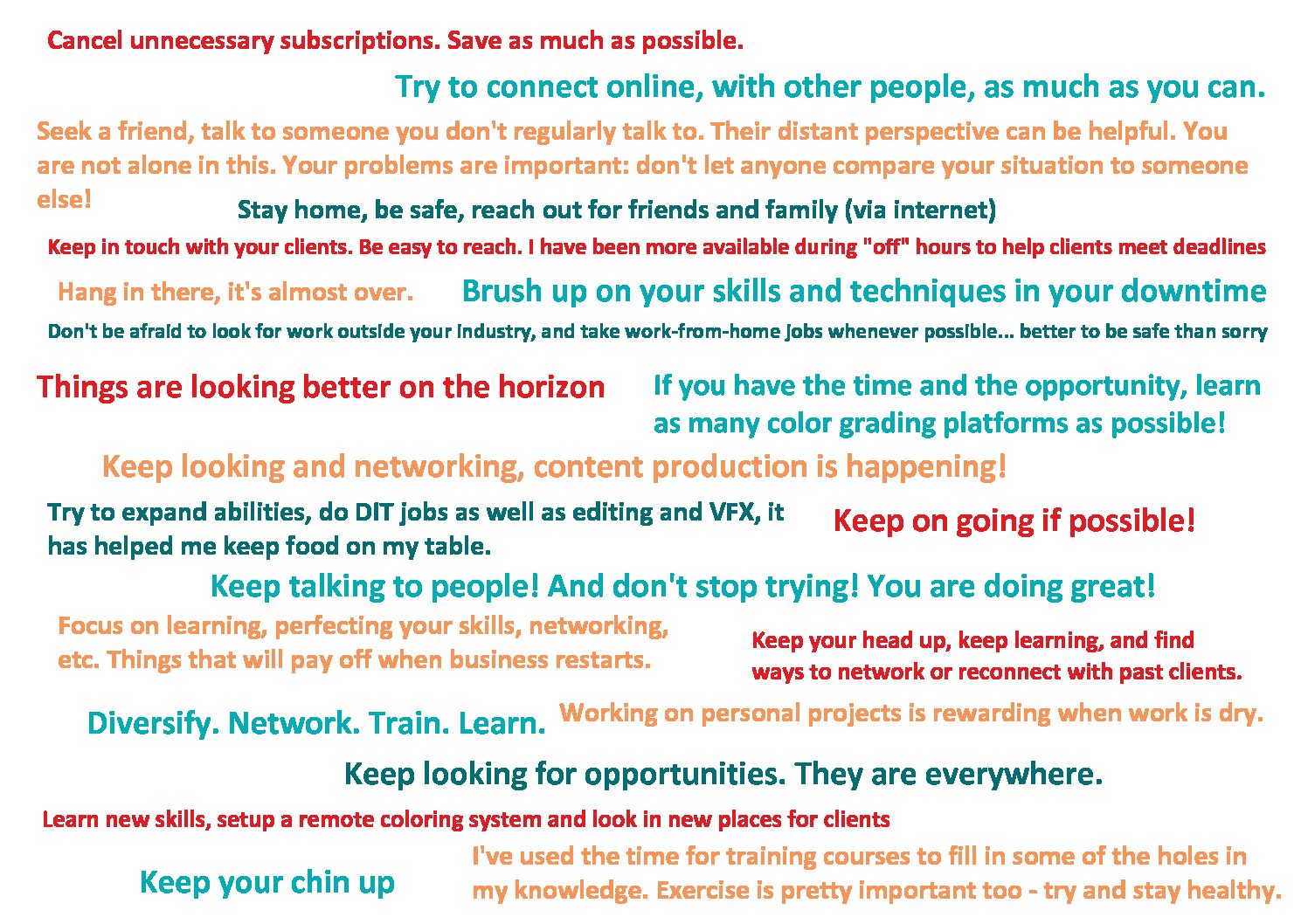There’s no doubt that COVID has affected our industry – perhaps more significantly than most. Latest estimates put the revenue loss at US$7 billion for the global film industry. While the demand for at-home film and entertainment has increased around the world due to lockdowns, cinemas and movie theatres shut, festivals and trade shows were cancelled, filming was disrupted or postponed, and all this has affected jobs for colorists both in number and in method. Elsewhere, advertising spends have been cautious due to scared markets and reduced consumer spending – all affecting commercial grading jobs.
There are many good articles about the way that COVID might change the face of Hollywood – from the way that streaming and cinema closures have been an equalizer for independent cinema, to the limitations on shooting, to changes in the kinds of content people want to consume under the current circumstances. Not to mention affects on financing, release times, industry consolidation, the end of the Paramount Consent Decrees allowing the return of vertical integration, and so on.
But how have colorists themselves been affected? It’s hard to get a cohesive global picture of our industry at the best of times – thanks to the disparate nature of our roles, the high ratio of freelancers, and the lack of unions and industry bodies (see Colorist Society International for more information on global colorist initiatives). So we polled our network for a worldwide snapshot of colorists’ COVID experiences.
–
Business has suffered
Almost a third of colorists actually saw business pick up under COVID, no doubt due in part to the sudden spike in demand for streaming content, and the concentration on finishing existing footage. But around half of you have definitely seen business deteriorate during the epidemic.
Things are beginning to look up however. 45% feel business has improved again somewhat since the middle of last year, and less than 1 in 8 feel business has continued to deteriorate. With the rollout of vaccines in many countries, leading to timelines for reopening and more optimism about travel and shooting this year, we expect things to continue to improve, and faster.
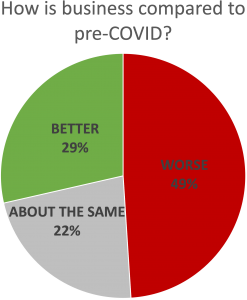 .
. 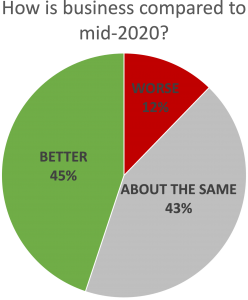
–
Little support
More than half of colorists polled received no financial relief during the pandemic – due to ineligibility or lack of government support, among other reasons. Almost all (93%) of those that received financial relief got it from their government rather than employers.
Of course, some of those that did not access relief may have been in the group that found business improve, and didn’t need help. But almost a quarter of colorists found it impossible to access relief, and a further 2 in 5 found it difficult. For many, the nature of our jobs made it difficult to apply for or secure financial support, thanks in part to an imbalance of support for arts and the self-employed.
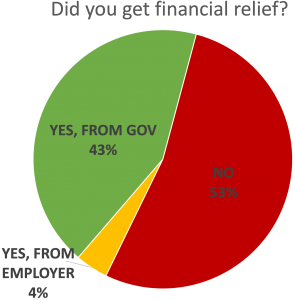 .
. 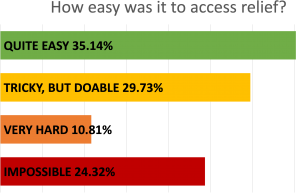
–
Resilience through adaptation
We hope you have made it through COVID relatively unscathed and are seeing circumstances improve wherever you are. Colorists are generally an independent and hardy bunch – we often exist on the peripheries of industries, (although representation like that of the CSI continues to make inroads to centre our work). We are part of a fast-changing and relatively young profession, and COVID has been no exception with people adapting in the way they work, what the offer, and how they collaborate (read our recent article in SHOOT magazine for more on COVID-driven changes to grading). Many of you have been joining our online Mixers to keep in touch with your global colleagues and stay plugged in to the latest industry thought-leadership and technological advancements. Here at the ICA, we took our live training online, using virtual grading suites to bring the classroom to you, and many of our instructors are offering COVID discounts and deals to try to help those using this time to upskill. We also offer lots of free tutorials and information for you to use.
Together, we will persevere with the community spirit that can make our industry so great. Here’s the advice from some of the survey respondents – your colleagues across the world – to those struggling under COVID. We hope it brings a smile to your face:
